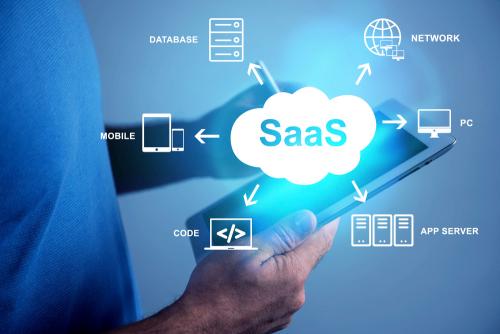Key Trends in SaaS Product Development for 2023

Introduction
In the rapidly evolving landscape of software technology, Software as a Service (SaaS) has emerged as a game-changing model for delivering software applications to users. As we step into 2023, the SaaS industry continues to experience remarkable growth, fueled by its flexibility, scalability, and cost-effectiveness. In this blog, we will delve into the key trends in SaaS product development for the year 2023, focusing on the advancements in SaaS product development and the role of Software Product Engineering Services in shaping this landscape.
Hyper-Personalization Takes Center Stage
In the world of SaaS, personalization has become more than just a buzzword. SaaS companies are increasingly recognizing the importance of catering to individual user needs and preferences. In 2023, hyper-personalization is set to take center stage, with SaaS product development teams leveraging data analytics and AI to offer highly tailored experiences. This trend not only enhances user satisfaction but also contributes to improved user retention and engagement.
Low-Code/No-Code Revolution
One of the most significant trends shaping SaaS product development is the low-code/no-code revolution. This approach empowers users with varying technical backgrounds to create and customize applications without the need for extensive coding knowledge. In 2023, SaaS platforms are expected to offer more intuitive and user-friendly interfaces, enabling businesses to develop applications that align precisely with their unique requirements. This trend not only accelerates the development process but also fosters innovation by democratizing app creation.
Security-First Approach
With the increasing frequency and sophistication of cyber threats, security has become paramount in SaaS product development. In 2023, SaaS providers will continue to adopt a security-first approach by integrating advanced encryption, multi-factor authentication, and real-time monitoring into their offerings. Additionally, data privacy regulations such as GDPR and CCPA will continue to influence the way SaaS products handle user data, ensuring better protection and compliance.
Microservices Architecture for Scalability
Scalability remains a key consideration for SaaS products, especially as user bases expand rapidly. Microservices architecture, characterized by its modular and decentralized approach, has gained traction in SaaS development. By breaking down applications into smaller, manageable services, developers can update, scale, and deploy specific components independently, leading to better resource utilization, enhanced fault tolerance, and overall improved performance.
AI and Machine Learning Integration
AI and machine learning are poised to reshape the SaaS landscape in 2023. From predictive analytics to intelligent automation, these technologies are finding their way into various aspects of SaaS product development. AI-powered chatbots are enhancing customer support, while machine learning algorithms are providing insights into user behavior and preferences, enabling SaaS companies to refine their offerings further.
Edge Computing for Real-Time Processing
As SaaS applications handle increasingly complex tasks and massive datasets, the demand for real-time processing has surged. Edge computing, which involves processing data closer to its source rather than in a centralized cloud server, is emerging as a trend to address this demand. By reducing latency and improving response times, edge computing enhances user experiences, making it particularly relevant for applications requiring quick decision-making or data-intensive processes.
Subscription Models Evolve
Subscription-based pricing models have long been a hallmark of SaaS products. In 2023, we can expect to see more flexibility and innovation in subscription offerings. This could include tiered plans catering to different user segments, pay-as-you-go models, and even outcome-based pricing where users pay based on the value they derive from the software. Such models align the interests of SaaS providers and customers more closely, fostering long-term relationships.
Role of Software Product Engineering Services
In the ever-evolving landscape of SaaS product development, Software Product Engineering Services play a crucial role in driving innovation and efficiency. These services encompass a range of activities, from ideation and development to testing and maintenance, and often collaborate closely with SaaS companies to bring their visions to life.
Expertise and Specialization
Software Product Engineering Services bring a wealth of expertise and specialization to SaaS development. They understand the intricacies of creating scalable, secure, and user-centric SaaS products. With a deep understanding of the latest trends and technologies, these services help SaaS companies stay ahead of the curve and create competitive advantages.
Accelerating Time-to-Market
In the fast-paced world of technology, getting a product to market quickly can make all the difference. Software Product Engineering Services are equipped with streamlined processes and skilled teams that can expedite the development lifecycle. This agility is especially crucial in SaaS, where competition is fierce, and user demands are ever-changing.
Ensuring Quality and Reliability
SaaS products must be reliable and of the highest quality to gain user trust. Software Product Engineering Services employ rigorous testing methodologies to identify and address issues early in the development process. This approach minimizes downtime, reduces post-launch bug fixing, and ultimately leads to a more seamless user experience.
Adapting to Emerging Technologies
The landscape of SaaS product development is constantly evolving, with new technologies and frameworks emerging regularly. Software Product Engineering Services excel at staying up-to-date with these changes and integrating the most relevant ones into SaaS products. This ensures that SaaS offerings remain cutting-edge and capable of delivering exceptional value to users.
Conclusion
As we step into 2023, the world of SaaS product development is poised for continued innovation and growth. Hyper-personalization, low-code/no-code development, security enhancements, microservices architecture, AI integration, edge computing, and evolving subscription models are just some of the key trends reshaping the SaaS landscape. With the invaluable support of Software Product Engineering Services, SaaS companies can navigate these trends, create remarkable products, and thrive in an increasingly competitive market. The journey ahead promises to be both exciting and transformative, with technology at the heart of it all.
Advertise on APSense
This advertising space is available.
Post Your Ad Here
Post Your Ad Here
Comments